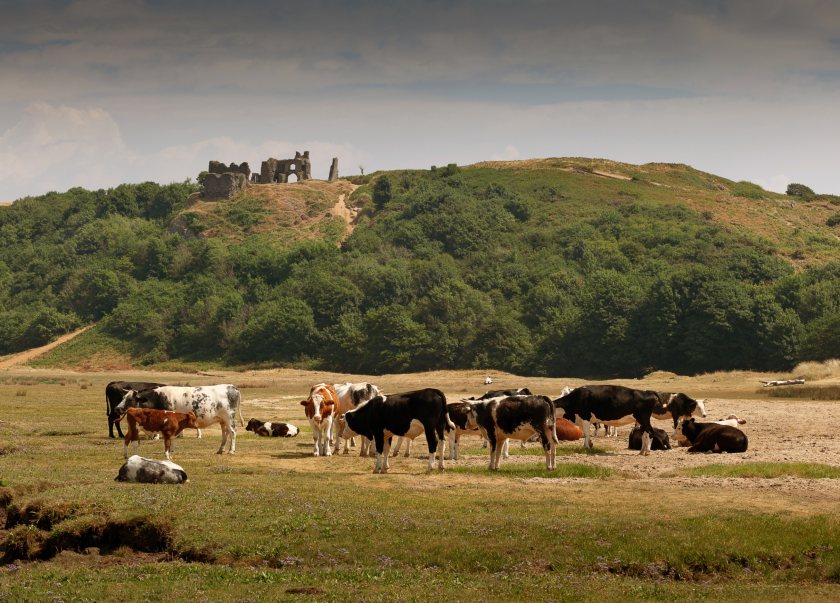
Concerns have been raised over the future stability of the Welsh beef sector after new half-yearly data shows a 'serious shrinkage' in cattle supply.
There were 213,200 calf birth registrations in Wales during the first six months of 2024, a decrease of over 10,000 calves year-on-year and a fall of 4% compared to Jan-June 2023.
This is according to new figures by British Cattle Movement Service (BCMS), which mark the lowest number of half-year calf registrations recorded in Wales in several years.
The stark figures show that this is well below the peak of nearly 230,000 head in 2021.
This decline also mirrors trends across the rest of Britain, with English registrations also 4% down and 2% for Scotland.
Analysing this, Hybu Cig Cymru-Meat Promotion Wales (HCC) said there would now be 'serious concerns' for many in the Welsh red meat sector.
Glesni Phillips, HCC’s analysis insight executive, said: “As cattle numbers in key age brackets fall, there are concerns around the critical mass needed to promote and maintain industry stability, which presents an overall concerning outlook for beef production."
The BCMS data reveals the number of calves that could be available for beef production has fallen to 173,600 head, its lowest level in several years.
Although some of the beef females will be retained as suckler replacements in the herd, this figure is 4% lower - that’s 7,400 head- than the number available during the first half of 2023.
Ms Phillips warned that this would likely have 'significant implications' for the future of beef supply in Wales.
HCC's own analysis offers a more detailed breakdown of the figures. Short-term cattle supply across GB is expected to remain relatively stable, with the number of cattle aged 12-30 months down just 0.3% year-on-year.
However, looking ahead, the number of cattle in the 0–12-month age bracket is significantly lower, down by 4%, suggesting that future beef supply across GB could be constrained.
Female dairy calf registrations in Wales between January and June decreased by 6% compared to the same period in 2023.
Male dairy calf numbers were down by 14%, resulting in an overall decline of eight per cent, or nearly 5,100 head in the number of dairy calf registrations.
Beef calf registrations were down 3% -or 4,600 head- to nearly 158,100 head in this half-year period, some 2% lower than 2022 and the lowest figure since 2019.
Ms Phillips said: “Both beef female and male calf registrations saw similar year-on-year declines of 3%, while the gender distribution remained relatively stable.
"Beef registrations made up 74% of total calf registrations in Wales, up from 70% in 2021.
"This shift in the balance between dairy and beef within the Welsh herd could change the future supply of beef if this trend continues."
